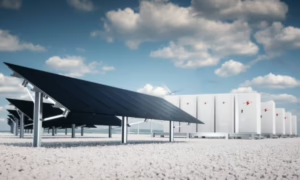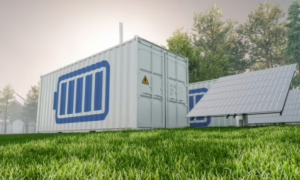Solar power has emerged as a game-changing factor in the global transition to sustainable energy solutions, propelling the global trend toward renewable resources. Solar energy uses the sun’s energy to generate electricity, providing a clean and environmentally beneficial alternative to typical fossil fuel-based electricity. Various products in the solar sector cater to various energy needs and purposes. In this detailed blog, we will look at three popular solar products: On-Grid Systems, Off-Grid Systems, and Hybrid Systems. Understanding the features and benefits of each system will enable households and businesses to make better-informed decisions about solar energy, ultimately contributing to a greener and more sustainable future.
On-Grid Systems:
The most frequent and simple solar installations are on-grid systems, often known as grid-tied systems. These systems are directly connected to the utility grid, allowing the solar energy generated to be used by the consumer’s property while any excess electricity is given back to the grid. When solar production exceeds consumption on sunny days, the excess electricity is fed into the grid, earning the customer credits or financial compensation from the utility provider via a feed-in tariff or net metering.
The Benefits of On-Grid Systems:
- Cost-Effective: On-Grid Systems are less expensive than Off-Grid and Hybrid Systems since they do not require expensive energy storage systems.
- Reduced Electricity rates: By using solar power throughout the day and feeding extra energy back into the grid, users can considerably lower their electricity rates or even earn money from the utility company.
- No Need for Battery Storage: There is no need for expensive battery banks because the grid works as a virtual storage system, lowering the original investment and maintenance expenses.
Off-Grid Systems:
Off-Grid Systems, sometimes referred to as Stand-Alone Systems, are intended to operate independently of the utility grid. These systems are generally deployed in rural places where grid connectivity is either prohibitive or impossible. Off-Grid Systems necessitate the use of energy storage devices, such as batteries, to store extra solar energy generated on sunny days for usage during periods of low or no sunlight.
The Benefits of Off-Grid Systems:
- Energy Independence: Off-Grid Systems provide complete energy independence, supplying electricity even in remote regions or during grid outages.
- Sustainable Solution: Off-Grid Systems encourage sustainable living and reduce reliance on fossil fuels by relying entirely on solar power and energy storage.
- Minimal Environmental Impact: Because they do not require electricity from fossil fuel-based power plants, off-grid systems have a lower carbon footprint.
Hybrid Systems:
Hybrid Systems combine On-Grid and Off-Grid Systems to provide the best of both worlds. These systems combine solar panels, energy storage, and a utility grid link to provide users with additional flexibility and reliability. Based on demand and availability, hybrid systems intelligently control energy flow, optimising the use of solar power, grid electricity, and stored energy from batteries.
The Benefits of Hybrid Systems:
- Energy Security: During grid disruptions, hybrid systems provide a backup power supply, assuring continued electricity delivery and better energy security.
- Benefits: Hybrid Systems automatically prioritise solar energy utilisation, reducing reliance on grid electricity while maximising the benefits of solar power.
- Grid Support: In some areas, Hybrid Systems can help stabilise the grid and reduce the load on power plants during high-demand periods.
Comparing the Different Systems, On-Grid, Off-Grid, and Hybrid:
Let’s look at how each system operates in different scenarios to better understand the distinctions between on-grid, off-grid, and hybrid systems:
1. Cost:
Due to the lack of expensive energy storage technologies like as batteries, on-grid systems are often the most cost-effective option.
Off-grid systems necessitate an investment in battery storage, which makes them somewhat more expensive upfront but provides complete energy independence.
Hybrid systems fall somewhere in the middle because they require both solar panels and energy storage but provide a good combination of cost and flexibility.
2. Energy Independence:
On-Grid Systems are powered by the utility grid and do not provide energy independence during grid outages.
Off-Grid Systems offer complete energy independence, making them appropriate for isolated sites or areas with intermittent grid connectivity.
Hybrid systems provide a degree of energy independence by providing backup power during grid failures and the ability to rely on the grid when necessary.
3. Reliability:
On-Grid Systems are highly reliable since they are grid-backed, assuring a constant power supply even when solar production is insufficient.
Off-Grid Systems are dependable when they have enough battery storage to provide a stable power source regardless of grid connectivity.
Hybrid systems ensure a steady energy supply by effortlessly switching between solar, grid, and battery power.
4. Environmental Effects:
By harvesting solar electricity and promoting clean and sustainable energy usage, all three technologies help to reduce the carbon impact.
By reducing dependency on fossil fuels and lowering greenhouse gas emissions, off-grid and hybrid systems have a stronger environmental impact.
Conclusion:
As the demand for clean and sustainable energy solutions grows, On-Grid, Off-Grid, and Hybrid Systems are becoming increasingly important in creating the solar energy landscape in India and beyond. Off-Grid Systems allow complete energy independence for remote sites, while On-Grid Systems provide a cost-effective option with the ease of grid connectivity. Hybrid systems optimise solar power utilisation while providing backup support during grid failures, combining the best of both worlds. Each system has its own set of advantages and applications, responding to various energy requirements and environmental concerns.
The solar industry’s ongoing innovation and technological developments have made solar goods more affordable and efficient, allowing individuals, households, and businesses to embrace solar energy and contribute to a more sustainable future. As solar usage grows, the joint effort to promote renewable energy will pave the path for a cleaner, greener, and more sustainable future.
About Sun-AP EcoPower:
Sun-AP EcoPower is a recognised industry leader in the distribution of high-quality solar panels and inverters from recognised brands like Panasonic, Adani, Livguard, DEIF, DEYE, Fimer-ABB, and others. Sun-AP EcoPower helps individuals, businesses, and organisations to harness the power of the sun and embrace a greener future with a strong dedication to sustainability and clean energy solutions. Sun-AP EcoPower, as a trusted distributor, provides a varied choice of high-quality solar goods, assuring consumers receive dependable and effective solutions for their solar energy needs. Sun-AP EcoPower is spearheading the solar revolution and contributing to a greener, more sustainable future by focusing on excellence and customer satisfaction.




